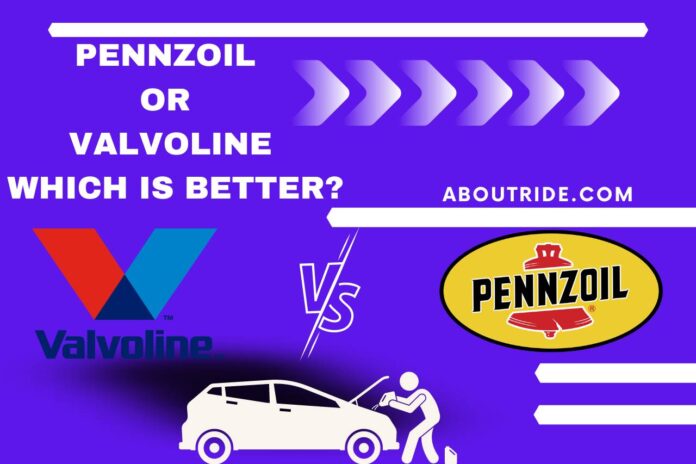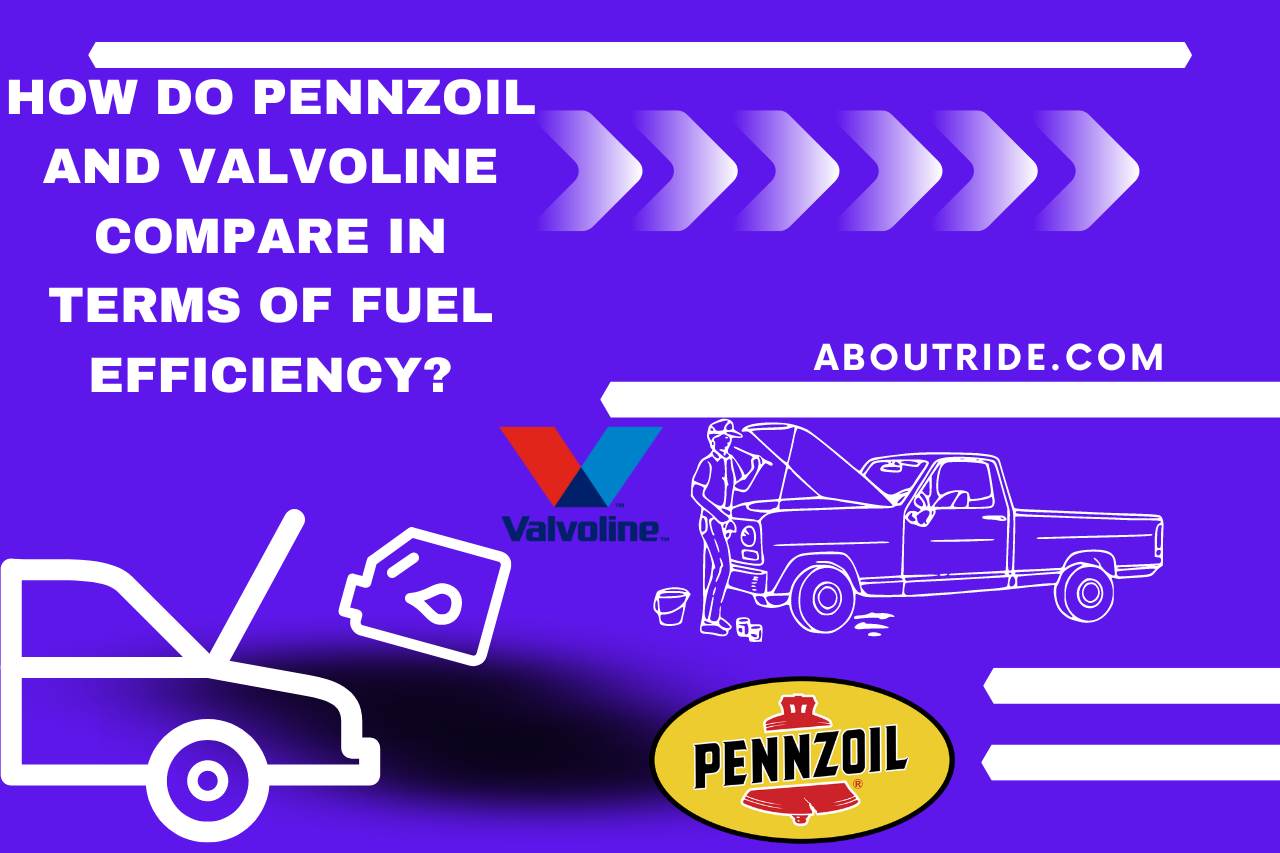Apart from tires, one of the most contentious car servicing problems is motor oil. And while tires protect you and your passengers, motor oil protects your engine, so it’s crucial to get it right. Pennzoil or Valvoline, which is better? However, getting it correctly can be complicated with many different oil kinds and brands. To shed some light on the matter, here’s how Pennzoil and Valvoline compare.
What are the Critical Differences Between Pennzoil and Valvoline Motor Oils?
The promotional approaches and attitudes toward the brands of Pennzoil and Valvoline are different. Their advertising strategies, sponsoring initiatives, and alliances could vary. The above factors may affect each brand’s perceived reputation and consumer loyalty, but they don’t always correspond to the real performance or caliber of the motor oils.
Another area where Pennzoil and Valvoline could potentially be different is the fundamental oil formulation. Base oils can come from a variety of sources and have a range of properties.
Both producers provide conventional, synthetic blend, and synthetic oils, although the base oils they employ might vary in composition and quality.
These businesses include technology and chemicals in their motor oils to offer further advantages.
These additives help to improve fuel efficiency, decrease friction and wear, clean the engine more effectively, and provide superior defense against oxidation and sludge formation. Brands and specialized product lines may use different formulas and technologies.
Which Brand Offers Engine Protection: Pennzoil or Valvoline?
Any motor oil ought to include engine protection as its primary objective, and both companies should make research and development investments to create lubricants that provide the best possible engine protection.
They use technologies and additives to improve lubrication, lower friction, stop wear, and offer defense against oxidation and sludge formation.
Synthetic, synthetic blends, and traditional motor oil formulations are all available from Pennzoil and Valvoline. Due to their exceptional properties and resistance to breakdown in hot and abrasive environments, synthetic oils offer improved engine protection.
Notable Variations in Performance Between Pennzoil and Valvoline Oils?
Both the respected motor oil companies Pennzoil and Valvoline strive to offer superior lubrication and engine protection.
Although their performance attributes are comparable, there may be differences in their unique formulas and product ranges. Between the two brands, different ingredients may be employed in the formulations.
These additives are in charge of boosting engine defense, cutting down on friction, avoiding wear, and raising overall performance. These additives’ efficiency and chemical makeup can differ, which might lead to minor performance variations.
A range of viscosity grades is available from Pennzoil and Valvoline to suit various vehicle needs and to driving circumstances.
Selecting an appropriate viscosity grade is essential for optimum engine efficiency and protection because the availability and exact viscosity grades between the two brands may differ.
Both Pennzoil and Valvoline provide various product ranges suited to many different uses and purposes. These product categories could include conventional, synthetic blends, and synthetic oils, each with unique performance traits.
Each brand may have particular sorts of goods created for high-performance automobiles, older engines, or particular requirements of the manufacturer.
Customer feedback and preferences are another aspect to take into account. While individual experiences can differ, reading reviews and considering the opinions of other car owners who have used Pennzoil or Valvoline oils can shed light on any noticeable performance discrepancies they may have noticed.
How Do Pennzoil and Valvoline Compare in Terms of Fuel Efficiency?
Both brands provide synthetic oils, which often offer higher fuel economy than conventional lubricants, especially regarding driving distance. Synthetic oils contain qualities that increase lubrication, lower friction, and improve overall engine performance.
For greater fuel efficiency, Pennzoil, for instance, provides a product range called Pennzoil Platinum that is specially designed. They assert that by lowering friction and improving engine performance, this oil can assist in increasing fuel efficiency.
Additionally, Valvoline provides a variety of synthetic lubricants, such as their Valvoline Advanced Full Synthetic line, which aims to enhance engine protection and fuel economy.
Pennzoil or Valvoline, Which is Better?
Choosing between Pennzoil and Valvoline is a personal decision influenced by various elements, including personal preference, vehicle needs, and individual experiences. Both Pennzoil and Valvoline have a solid reputation for producing high-quality motor oils.
For any unique recommendations or requirements regarding motor oil, consult the owner’s manual of your car. Specific oils, like Dexos for General Motors vehicles, may be required by some automobiles. Make sure the oil you select complies with the specifications set out by your car.
Consider your driving style, the weather, and any particular requirements for performance. You may use synthetic oils or specialty product lines from both manufacturers if you drive a high-performance car or are in harsh conditions.
Investigate the many categories of goods and formulations each brand offers. They might offer conventional, synthetic blends and oils to satisfy different needs. Analyze the individual features, advantages, and vehicle compatibility.
Read feedback from customers and take each brand’s reputation into account. Other car owners’ experiences with Pennzoil and Valvoline oils can be gleaned from their comments.
How Long does Pennzoil Oil Last?
Pennzoil Platinum Full Synthetic Motor Oil is advertised to offer protection in cars used generally for up to 15,000 miles or one year.
Can I Switch from Valvoline to Pennzoil or Vice Versa?
Using Pennzoil instead of Valvoline or vice versa is possible without any problems. Both Pennzoil and Valvoline belong to reputable companies, and both of their motor oils work with various automobiles.
Owners of vehicles frequently swap between many types of motor oil depending on their preferences, what is readily available, or other considerations.
Ensure the motor oil you select complies with your vehicle’s specs and needs. For suggestions about oil viscosity, performance requirements, or manufacturing criteria, see the owner’s manual for your vehicle handbook.
It is typically advised to gradually transition from one brand to another rather than immediately if you desire to change brands.
You can use the new oil on your subsequent oil change and stick with it going forward.
Can you Mix Pennzoil and Valvoline Oil?
Mixing several motor oil brands or varieties is typically not advised. Specific base oils, additives, and performance qualities used in the formulation of motor oils can differ between brands. By altering the intended chemistry and performance of the oil, mixing different oils could negatively impact its lubricating and protecting qualities.
Executing an oil change and utilizing the new oil is typically recommended if you’re debating between Pennzoil and Valvoline. It is optional and advantageous to combine the two oils.
Watch this one,
Video Credits – Ford Boss Me
You May Also Like

